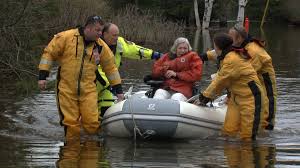The politics of flood response
First of all, to all those who experienced a loss from the flood, may you find the strength, and support, to rebound. I know for some, the loss in property is considerable.
On my mind today though, is the politics around the flood, and how our provincial politicians handled it. When there is a crisis, in this case the flood, a politician’s reputation is either enhanced, or diminished, depending on how he or she responds.
I will share my thoughts because, well, it’s my blog, but in all seriousness what I think doesn’t matter. It’s what most people think that counts, and by most people I mean those aside from the partisans. As for them, from what I gather from what I hear and what I see on social media, it’s hit and miss. And inevitably along partisan lines. To die-hard Tories, Brian Gallant was only concerned with photo-ops. To die hard Liberals, Brian MacDonald and Trevor Holder jumping on the Premier for not calling out the army earlier in the game was crass politicking to capitalize on other people’s misery.
Premier Gallant pitches in. Photo: Telegraph Journal
The photo-ops are to be expected. And they are important. They are a way for a leader to show people who are upset and stressed to the max, that the government understands what they are going through, and is here to help. We shouldn’t underestimate the importance of that.
On the other hand when to show up and what to do can be a tricky balance between being helpful and being seen to be helpful, and being in the way and being seen as a distraction. Premier Gallant was accused of this during the ice storm last year, where EMO officials had to devote time and resources to have someone join him for tours and news conferences, when they were already had their plates full managing the crisis itself.
Photo credit: Twitter
The Premier and his people were apparently sensitive to that this time, and did not add any extra burden on EMO. Interestingly, Gallant’s people felt a need to outline to media exactly how much time he spend on sandbag duties – 45 minutes here, two hours there, etc. Point being, his team wanted us to know it was real help, not just a Kodak moment. (Is that reference too dated?)
To my mind, he played it well. I don’t mean to imply any politician tried to score political points above being genuinely concerned and genuinely wanting to help, but especially in an election year, there would naturally be at least some element of the former.
Photo credit: thelapine.ca
On this issue of politicians showing up, or not, in the midst of a crisis, there are both good and bad examples out there. One of the worst examples was when the Prime Minister Stephen Harper showed up at the big forest fire in the Kelowna area of British Columbia a few years back, and a dozen or so firefighters were ordered off the lines, where they were actually fighting the fire, so he could get a photo-op with them. That’s about the ultimate of how to be an ass.
The good example was a few years later and the major fires in the Fort MacMurray area, where Prime Minister Trudeau abided the request to stay away until things calmed down, as his presence would have required resources for security, logistics etc, and those people had more important things to do. So he showed a week later when the time was right. But still there was lots of criticism and suggestions he stayed away because he didn’t care. Sometimes you just can’t win.
Conservative MLA Brian MacDonald Photo credit: Telegraph Journal
But back to New Brunswick. I don’t know if damage would have been lessened if the army had been brought in earlier, as Conservative MLA and former Canadian Armed Forces personnel Brian MacDonald claims. What I do know is that Gallant says the Commander at Base Gagetown Brigadier General Derek Macaulay agreed there were no tasks appropriate for the army while the waters were rising.
EMO Director Greg McCallum Photo: CBC
My thinking is that EMO was in charge, and it should be their call whether to call in the resources of the Armed Forces, rather than having a politician overrule their judgment, as MacDonald apparently would have done had he had the authority. EMO Director Greg McCallum said he was in touch with Base Gagetown every day, so he seemed to be on top of things. He did call in the Coast Guard. For what it is worth I say you give a guy authority and then leave it to his best judgment on how to handle things. The last thing EMO would need in the midst of this crisis was to be second-guessed. I’m sure Brian MacDonald made the suggestion with the best of intentions, but I agree with Gallant that it should be EMO’s call.
Tomorrow, Part 2 of this post-flood blog, with some thoughts on clean up and compensation.
Thanks for reading. Shares (below) are appreciated.







